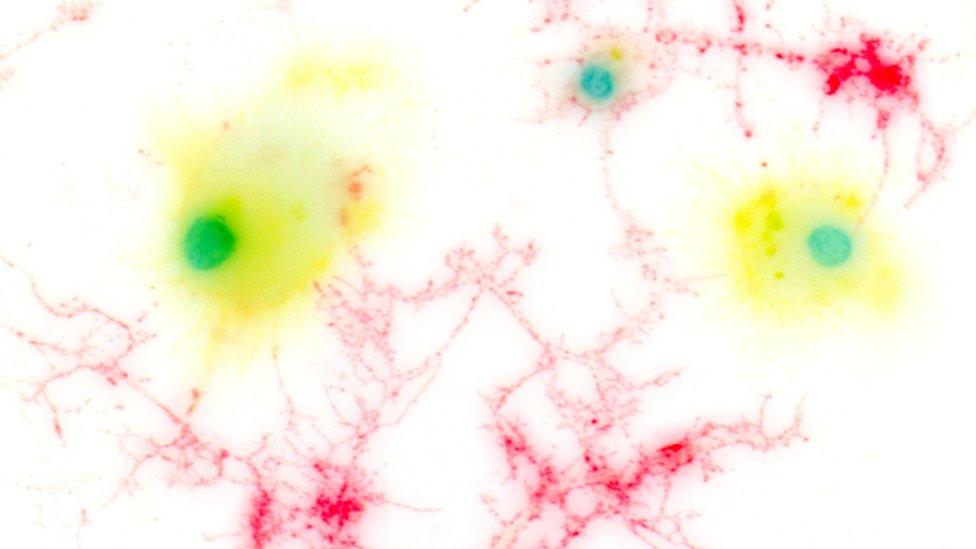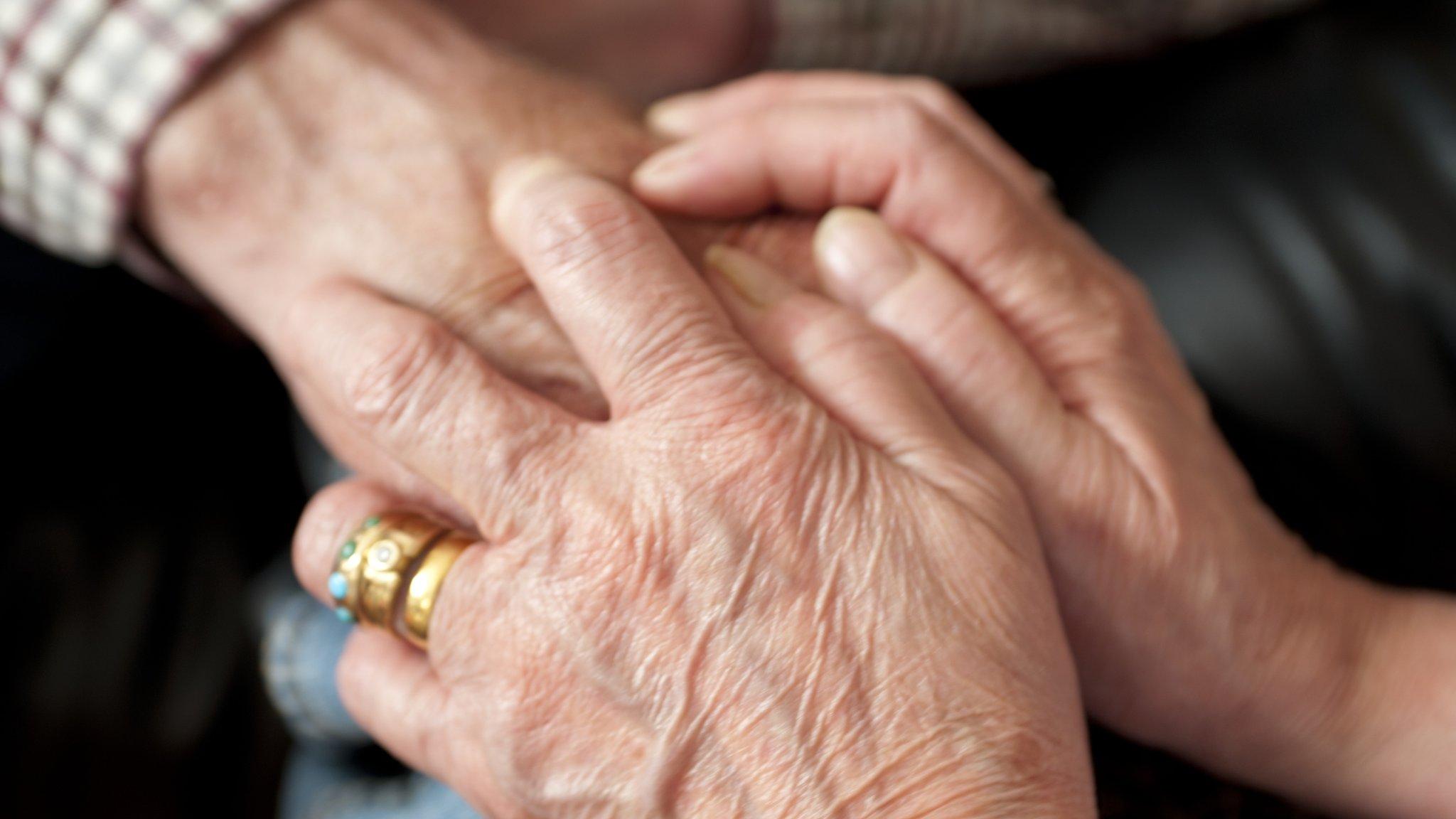Too many delay seeking dementia diagnosis, charity says
- Published

More than half of those seeking a diagnosis for dementia have delayed going to their GP by at least a year, according to a survey carried out by the Alzheimer's Society.
The charity says nearly two-thirds of people fear a diagnosis would mean their life is over.
But it says an early diagnosis can actually help people to live as well as possible.
And it wants everyone to confront head-on the challenges posed by dementia.
In a survey of 2,000 adults, almost half thought they would have to stop driving immediately while one in five feared losing their partner or friends if they were diagnosed with dementia.
Nearly 60% thought they would struggle to join in conversations and almost half worried people would think they were "mad" if faced with a diagnosis.
But the charity said these myths about dementia were stopping people from getting the best possible treatment and also preventing them from planning for the future.

When to see the doctor
There are many possible symptoms of dementia, and anyone experiencing them is encouraged to see a doctor as soon as possible. Common symptoms include:
memory loss, especially problems remembering recent events such as messages
periods of mental confusion
difficulty finding the right words
difficulty with numbers or handling money in shops
increasing difficulty with tasks and activities that require concentration and planning
depression and changes in mood or personality

One in three people surveyed said they didn't go and see their GP because they thought memory problems were just a natural part of the ageing process.
Jeremy Hughes, chief executive of the Alzheimer's Society, said delays in seeking medical attention were something they wanted to change.
"Too many people are in the dark about dementia - many feel that a dementia diagnosis means someone is immediately incapable of living a normal life, while myths and misunderstandings continue to contribute to the stigma and isolation that many people will feel."
He said he wanted to reassure people that life doesn't end when dementia begins.
"There's no question that it can have a profound and devastating impact on people, their family and friends - but getting a timely diagnosis will enable people with dementia to live as well as possible."
There are around 850,000 people in the UK with a form of dementia - a figure that is predicted to rise to one million in less than 10 years and to two million by 2051.

- Published8 January 2016

- Published30 April 2016
